Forever Schools
By
1 year ago

From aquaponic gardening to building hedgehog homes, solar panels to dedicated prefects, Emma Reed showcases the latest in eco-innovations
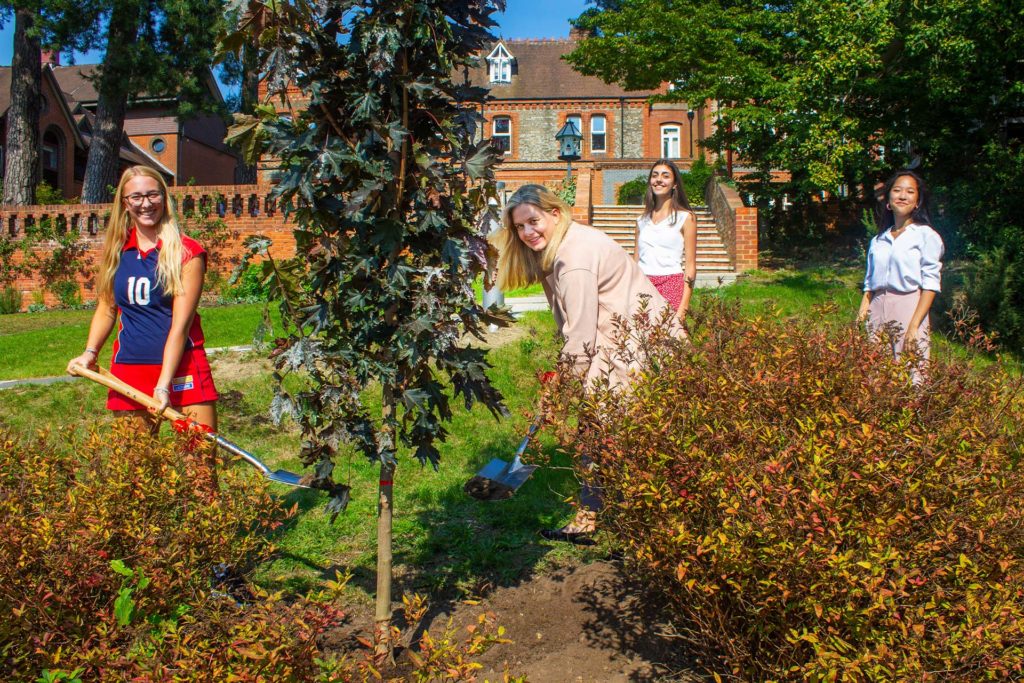
With COP27 taking place last November, and warnings about climate change becoming starker by the day, there is much work to be done both now and in the future. One of the problems is that there is far too much talk and too little action. Unless, that is, you look at the commitment and initiatives being taken by many schools today, conscious of the alarming legacy left for future generations. While leaders debate and deliberate, schools are taking steps to not only create a sustainable environment in which to teach their pupils, but they are arming them with knowledge as custodians of the planet and also learning from them too.
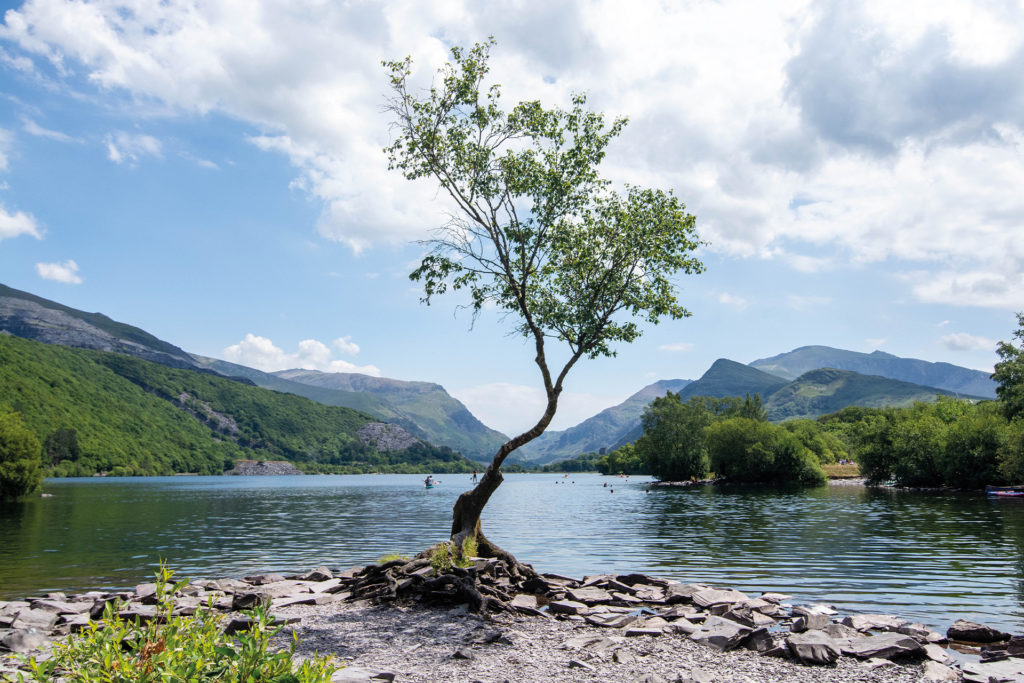
With views across the Snowdonia National Park and the coastal town of Llandudno just a mile away, Ian Martin, Head of Outdoor Education at St David’s College, notes how the pupils there are imbued with a sense of the natural resources surrounding them. ‘Developing a connection with nature, a sense of place and appreciation of the natural world is at the heart of the extensive outdoor education programme that begins in Year 5,’ Martin says. He explains that this programme which puts pupils in direct contact with the sea, rivers, lakes and mountains ‘helps foster a sense of stewardship.’
In the lower years, the National Outdoor Learning Award’s framework of learning about the self, other and the environment through activities, discussion and observation, is one way in which sustainability is taught. In Year 9, all pupils achieve the ‘Discovery Award’ in partnership with the John Muir Award where the emphasis is on a project focusing on the exploration and conservation of a local area which is also shared with the wider community.
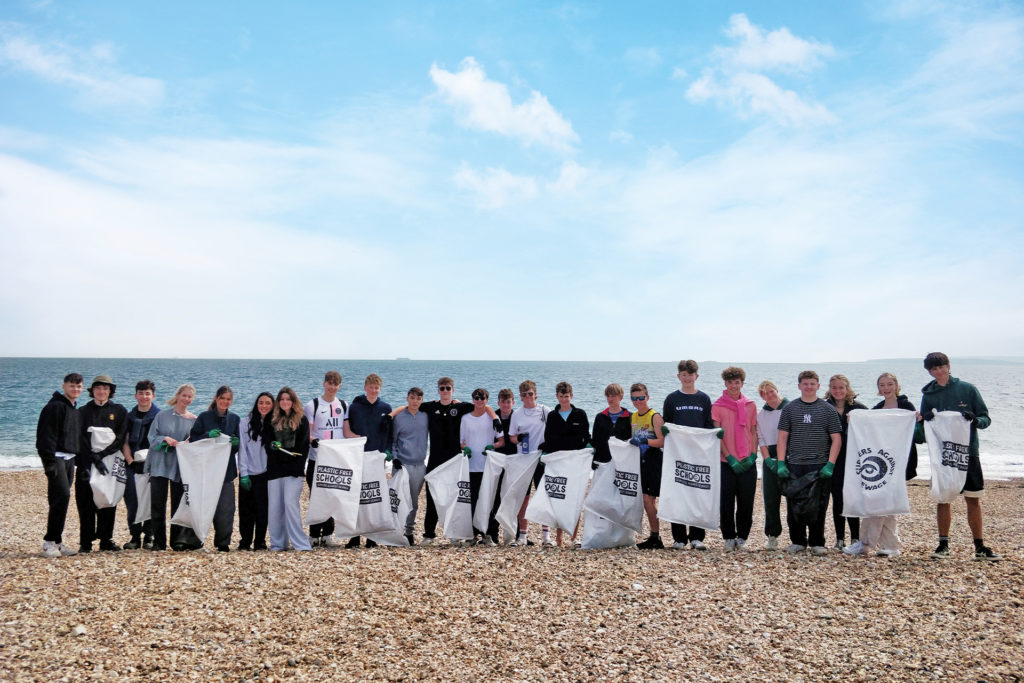
Martin explains that various initiatives are ongoing within the school such as lift sharing or hiking from the school grounds, using local venues where possible, along with a student-led paper and crisp packet recycling scheme, one of the steps contributing to St David’s Eco School status. The school also has a walled garden tended by pupil volunteers with produce used within the school.
One of the aspects the school is considering carefully is the impact of travel. ‘The school has a long history of adventurous expeditions that have seen pupils travel across the globe on humanitarian, exploration and cultural projects,’ says Martin. ‘While there’s no doubting that these have tremendous impact on the pupils, there is also an environmental cost that now needs to be considered.’ St David’s intends to be active in finding ways to ensure any future expeditions are carried out in a sustainable manner.

Wellington College appointed their own Head of Sustainability, Ana Romero, as early as 2016, and a school-wide Sustainability Policy was launched in 2019. One of its aims is to be carbon neutral by 2030. There’s a strong emphasis on pupils taking ownership of environmental matters through its Sustainability Programme. Within this, there is a Sustainability Committee, a dedicated Sustainability Day and even Sustainability Prefects. Their partnership with SEEd (Sustainability and Environmental Education) has seen co-curricular projects take place including the creation of an aquaponic system to feed plants used in the kitchens and a food waste competition presented in an assembly. Collaboration with SEEd also saw a pilot study of Wellington’s ‘Young Changemakers Programme’ presented to UNESCO at COP25. At the Festival of Education hosted by Wellington each year, 2022 involved the introduction of a sustainability stand showcasing environmental resources and materials to teachers from the UK and beyond.
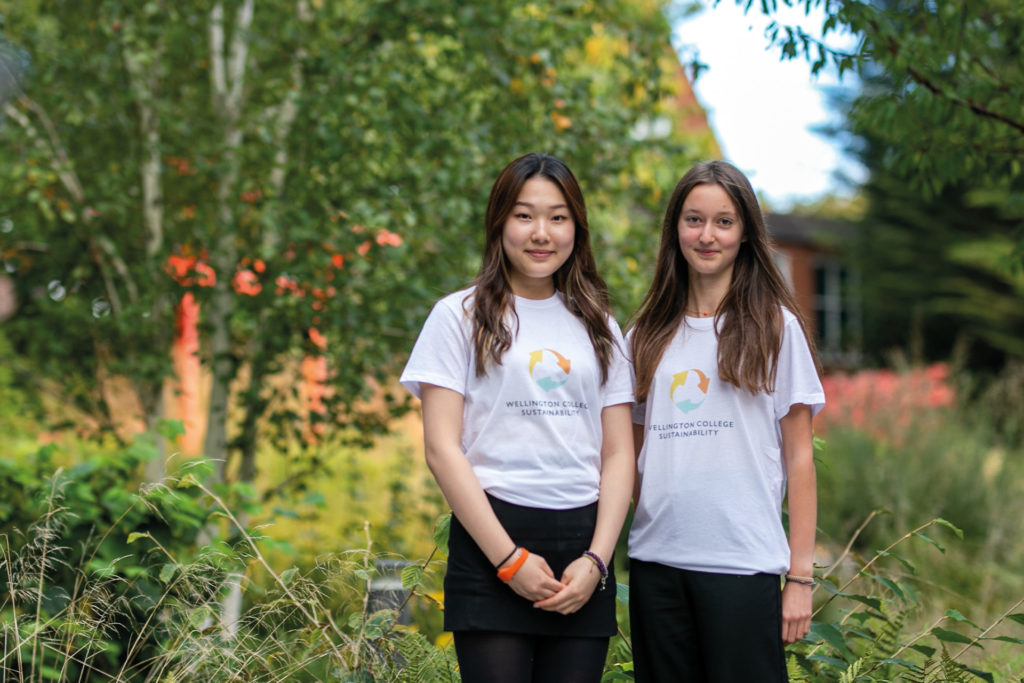
Its location within 400 acres of beautiful grounds with a fifth of the estate designated as a Local Nature Reserve, lends itself to plenty of sustainable initiatives: there are more than 120 bird boxes on site, 70,000-plus bulbs were planted recently to encourage pollinators, all tree waste is chipped and turned to mulch and 95 percent of green waste is composted on site. Pupils are involved in around 250 hours of conservation management every year. It’s not just outside either; Wellington currently has a 50 percent recycling rate and notably, recently achieved a 30 percent reduction in food waste with approximately one tonne of food waste per week recycled. All new buildings have solar panels and employ water saving systems. Over the last year, it has repurposed about 500 pieces of furniture to go to charities and other schools and has begun to transfer its minibus fleet over to electric vehicles. Wellington’s aim is to integrate education about sustainability more fully into the curriculum, continuing to encourage its pupils to lead the way in making changes.
Cameron Vale School’s central London location has not hampered its pupils from taking care of the natural world. Some of the pupils have been building hedgehog homes in a local garden and are hoping for new inhabitants. Their teacher has a Bluetooth camera to keep an eye on activity, its own form of nature watch. There have been class-wide initiatives to encourage children to recycle and reuse materials and the school council has been planning a recycling fashion show. The Art Club has been involved in creating art, keyrings and decorations out of junk. Woven into the curriculum, Year 6 has been learning about the history of waste, what happens to everything we throw away and why recycling is so important.
Another school making the most of its location is St. George’s, Ascot. Based in the middle of Windsor Great Park and near the racecourse, there’s a keen sense of responsibility in looking after the environment. They were one of many schools in the area who took part in the Queen’s Green Canopy. While St. George’s are adopting initiatives core to many schools, what is significant is an attention to detail, to those small things that end up making a substantial difference. It’s as simple as not mowing too closely around the base of trees, Felicity Cooper explains, ensuring that it’s beneficial for pollinators and insects. ‘It might not look as neat, but it certainly has a purpose,’ she says.
Last September St. George’s launched a strategic intent for the next 10 years in terms of what they want to achieve, but they’ve already made great strides. ‘We made sure that we intertwine sustainability within the curriculum, so that it’s not just something that’s one step removed and done in addition. It’s a living, breathing part of the girls’ education and it’s a golden thread that runs through what we do,’ says Cooper. They now have an environment prefect to lead the way and to be a role model for others, and they strongly encourage a community mindset within the school where everyone is encouraged to educate themselves on sustainable matters and to make the right choices. For example, in the dining room there is a ‘take what you want but eat what you take’ ethos to discourage food waste.
Solar panels installed on the sports centre roof saved them £400 in costs in the first week of installation and when they over generate, it’s returned to the National Grid. Vehicle charging points have been put in place and they are also looking to review their fleet of minibuses, with the aim of transferring to electric vehicles. They now undertake a fair amount of detailed route planning to ensure it’s economically sensible and environmentally sustainable.
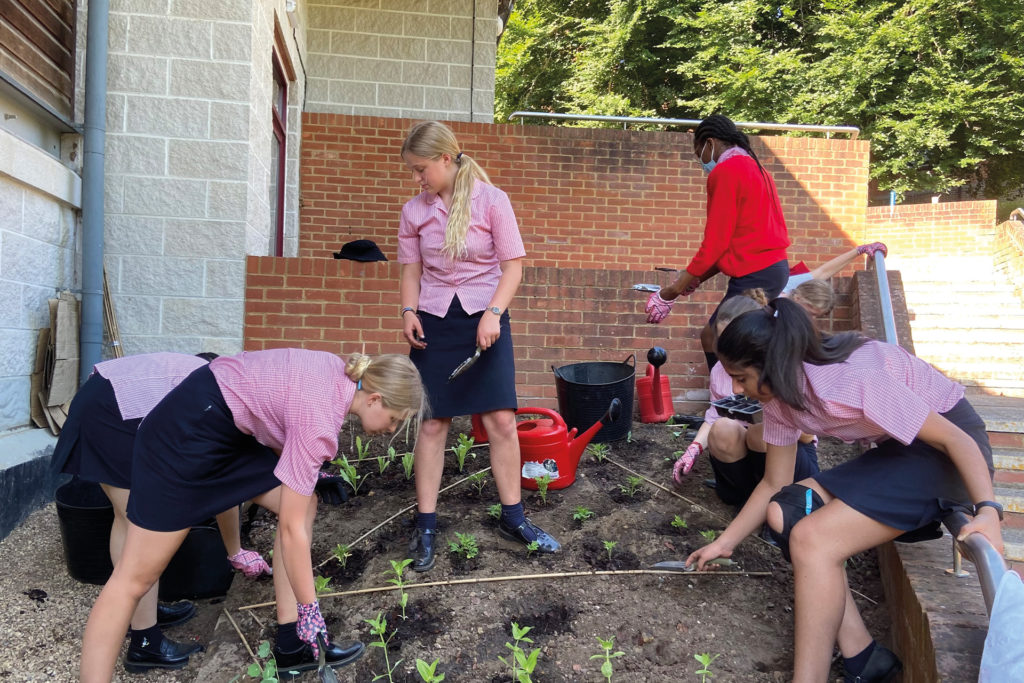
Paper has always been a big issue for schools and before the pandemic each pupil was issued with a Chromebook resulting in St George’s being awarded ‘Google for Education Reference School’ status, a prestigious award that acknowledges innovation in teaching. ‘That doesn’t mean that all books go, as we have a fantastic library,’ says Cooper. ‘We very much believe in blending the traditional with the new, but with the use of Chromebooks, we estimate that we’ve reduced our paper usage by 60 percent.’
They take this approach with them. Attending the Independent Schools Show in November, their aim was to ensure everything was recycled, recyclable or reused, such as taking their own furniture, hiring a wooden bookshelf, having display panels made out of chipboard rather than foamex. Visitors could take a virtual tour of the school on VR headsets and tap on a QR code on the back of a bookmark to access further information about the school, reducing the need for swathes of what Cooper calls ‘printed collateral.’ Sustainability is at the very forefront of their new school film.
The school also benefits from an apple orchard and wildflower meadows have been planted across the site. There’s also an active gardening club. Cooper says the aim is to attain Eco School status and their overall strategy is to put environmental sustainability at the core of everything they do. They have recently had a speaker from the University of Reading to talk to the girls about sustainability. Cooper says that 25 percent of girls who left the school last year have gone on to study STEM subjects at university. She’s not suggesting that everyone is going to be a climate scientist, but she does say this: ‘There is that appetite to sort of get our arms around the world and understand it, and look at how we can make a positive difference.’ It seems that many schools are doing just that.
See the school’s online listings here: St George’s Ascot, Wellington College, Cameron Vale School



